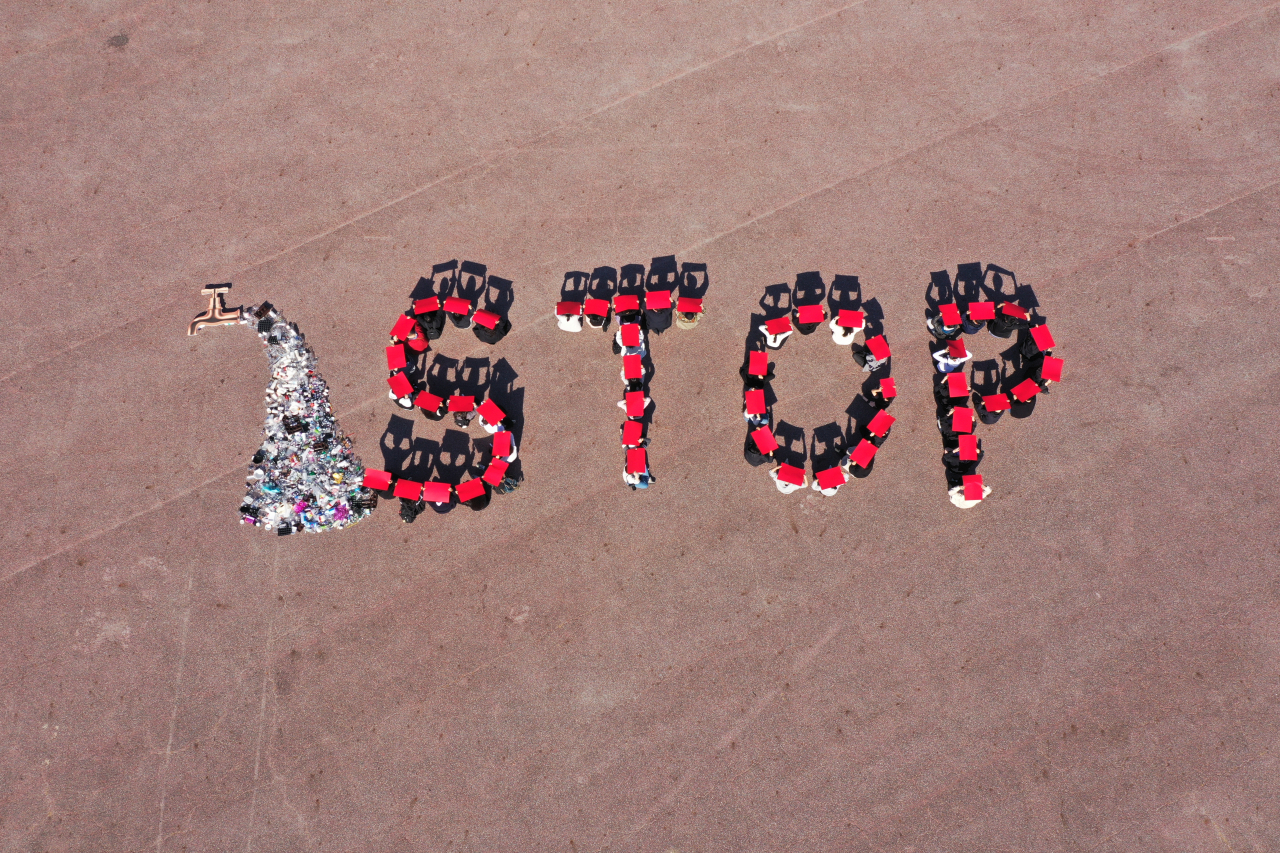
 |
| Activists from the Korea Federation for Environmental Movements stage a “human sign” performance, calling for the adoption of a strong international treaty against plastic pollution at Yeouido Hangang Park in western Seoul on Oct. 26. (Korea Federation for Environmental Movements) |
With less than a week left for the Intergovernmental Negotiating Committee to develop an international, legally binding instrument on plastic pollution at its fifth and final session, the Ministry of Environment told the press Wednesday that reaching a deal “could be difficult.”
"Out of the five scheduled rounds of negotiations, four have been completed,” said an Environment Ministry official. “However, the process remains deadlocked due to sharp conflict between countries which consume and produce plastics on the topic of regulating the production of raw plastic materials.”
The key sticking point in negotiations since the previous session, INC-4, has been whether to regulate the production of primary plastic polymers -- new plastics derived from fossil fuels that serve as the foundation for most plastic products. Primary polymers are valued for their durability, cost-effectiveness and versatility, but their non-biodegradable nature poses significant environmental risks. They can persist for centuries, contributing to soil, water and marine pollution.
Member states of the High Ambition Coalition, including countries like South Korea, Japan and the European Union, argue that the production of primary polymers should be reduced.
On the other hand, the Global Coalition for Plastics Sustainability, led by Saudi Arabia and other oil-producing countries such as Iran, contends that waste management and recycling should take precedence in the negotiations over regulating plastic production.
“As countries that produce plastics are pushing to remove references (in the treaty) to primary plastic polymers and are calling for additional negotiations, this makes coming to a final consensus during the INC-5 challenging,” added the ministry official. As decisions at the negotiating committee are made by unanimous agreement, opposing opinions from even just a small number of countries would prevent the treaty from being finalized.
The official also told the press that Korea's delegation, led by Environment Minister Kim Wan-seop, is "prepared to offer a compromise to ensure the treaty is finalized," showing a more proactive stance compared to the past, when the ministry mentioned only that it is working to finalize the agreement.
Since the end of INC-4, committee chair Luis Vayas Valdivieso has proposed that divisive issues, such as the regulation of primary plastic polymers, are addressed the the form of “declaration,” with detailed measures to be developed later. However, critics argue that reaching only a declarative agreement is insufficient, given the “severity of plastic pollution.”
“Plastic pollution is no longer something that we can push off to the side, to deal with later,” Yu Hye-in, an activist from the Korea Federation for Environmental Movements, told The Korea Herald. “Rather, a legally binding agreement to address plastic pollution is no longer optional but essential. As the host country of the INC-5, the Korean government must demonstrate responsible leadership to ensure the successful drafting of the agreement.”
The fifth session is scheduled to be held from Nov. 25 until Dec. 1 in Busan, and is expected to be attended by 3,879 participants, including delegations from 175 countries.









